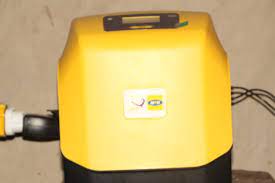1.1K
Frustrated by constant power cuts? MTN Lumos offers an innovative solar inverter system designed to bring affordable and reliable electricity to Nigerian homes and businesses.

The Power of Solar with MTN Lumos
- Clean Energy: A sustainable alternative to unreliable electricity grids.
- Cost-Effective: Flexible payment options tailored to your budget.
- Essentials Covered: Power your lights, charge your devices, and stay connected.
How MTN Lumos Works
- Pay As You Go: No hefty upfront investment. Pay in small increments over time.
- Setup Fee: A one-time N28,000 for installation and equipment.
- Plans for Everyone: Choose from daily, weekly, monthly, and longer-term plans.
- Ownership Option: Purchase the Lumos Eco or Prime system outright on Jumia.
Why Choose MTN Lumos?
- Reliability: Enjoy uninterrupted power when the grid fails.
- Savings: Pay less over time compared to relying on generators.
- Convenience: Simple setup and easy payment options.
Important Notes
- Minimum 20-day monthly payment applies for Pay As You Go subscribers.
- MTN Lumos retains ownership under the Pay As You Go model.
Ready to Ditch Power Worries?
MTN Lumos presents a smart way to power your life without breaking the bank.
For those who prefer outright ownership, MTN Lumos offers two systems on Jumia Nigeria:
- Lumos Eco:
- 1 x 80W solar panel
- Basic setup for smaller needs
- Lumos Prime
- 2 x 80W solar panels
- More powerful for greater energy demands
Say goodbye to blackouts and hello to a brighter future with MTN Lumos
